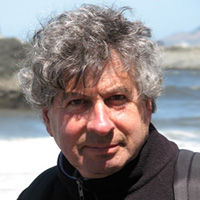When I heard of Pope Benedict's resignation, I knew it was time to reassess my life.
At 67, I would like to think that I have the physical strength I had at 40. But when I have difficulty lifting a single case of bottled water, I know I've changed. Playing four-wall handball with guys in their 30s used to be a joy. Now, I search for men older than me. As a university professor, multi-tasking was a way of life. Now, holding onto a single thought can be challenging at times.
Aging became real when abilities that held a significant place in my life vanished. And as my mind and body wind down, I realize that death is no longer something on the distant horizon, but rather an approaching appointment. But what causes the greatest angst is my changing identity.
Identity is based on how we view ourselves -- our abilities, roles, values, needs and beliefs -- whether that person is Pope Benedict or me. While the components in our respective identity stews differ, we face the same dilemma: change one significant thing for either of us and the flavor changes. Change too many things and what was a vegetable soup becomes Vichyssoise. Even if we lose only a few abilities, if they were significant, we both become different people, despite pronouncements of some New Age pundits that a person's core never changes. Ah, if life were only that simple. But we are what we do and believe.
For me, the lesson gained from the pope's resignation is very simple: if the person who holds the most powerful autocratic position in the world can recognize that he can no longer function effectively because of aging, maybe I can graciously accept the 20-something's offer to give me her seat on Muni.
